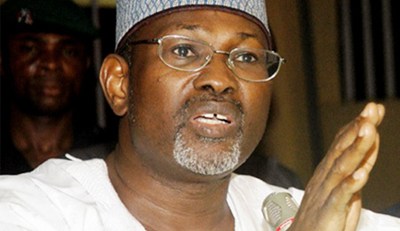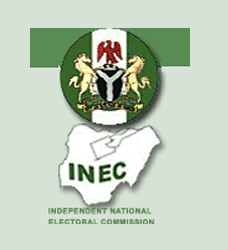STATEMENT ON THE TIMETABLE FOR 2015 GENERAL ELECTIONS BY THE CHAIRMAN, INDEPENDENT NATIONAL ELECTORAL COMMISSION (INEC), PROFESSOR ATTAHIRU M. JEGA, AT A PRESS CONFERENCE ON FEBRUARY 07th, 2015
Ladies and Gentlemen,
Introduction
We invited you here today to make known the position of the Independent National Electoral Commission (INEC) on the timetable for the 2015 general elections. Let me state from the outset that the Commission’s position was reached after carefully weighing the suggestions from briefings held with different stakeholders in the electoral process.
The conduct of elections in a country like Nigeria is invariably a collective venture that involves not just the Election Management Body (EMB), but also a diverse range of stakeholders, notably security agencies, political parties and their candidates, voters, as well as interest groups, such as the civil society organizations and the media. To guarantee successful conduct of elections, there are things that are wholly the responsibility of the EMB. But there are other things critical for the success of elections, which fall outside the control of the EMB.
In other words, while INEC must work hard to perfect its systems and processes for conducting elections, and take responsibility for any imperfections thereof, whatever the Commission does may not by itself be sufficient to guarantee the success of elections. There are a number of issues in the preparation and conduct of an election, the most critical of which is security, which is not under the control of INEC.
Current State of INEC’s Preparedness
On Thursday, February 5, 2015, I was invited to brief the National Council of State, which is the highest advisory to the President comprising past and present leaders in Nigeria, on the level of preparedness of INEC to conduct the 2015 general elections. I made a presentation to the Council titled ‘Preparations for the 2015 General Elections: Progress Report,’ in which I gave a detailed account of what the Commission has been doing in readiness for the national elections (National Assembly and Presidential) scheduled for February 14th, and the state elections (Governorship and State Assembly) scheduled for February 28th, 2015.
The summary of my presentation to the National Council of State meeting is that, for matters under its control, INEC is substantially ready for the general elections as scheduled, despite discernible challenges being encountered with some of its processes like the collection of Permanent Voter Cards (PVCs) by registered members of the public.
In addition, INEC has been doing everything it can to facilitate the collection of the PVCs by registered members of the public. As at 5th February 2015, the total number of PVCs collected was 45, 829, 808, representing 66.58% of the total number of registered voters.
In the delivery and deployment of electoral materials, INEC is also at a comfort level in its readiness for the general elections as scheduled (see the presentation to the Council of State). The Commission’s preparations are not yet perfect or fully accomplished. But our level of preparedness, despite a few challenges, is sufficient to conduct free, fair and credible elections as scheduled on February 14th and February 28th. Compared with 2011 when, within a short time, we conducted general elections that were universally adjudged free, fair and credible and the best in Nigeria’s recent electoral history, our processes are today better refined, more robust and therefore capable of delivering even better elections.
Other Variables
But as I mentioned earlier, there are some other variables equally crucial for successful conduct of the 2015 general elections that are outside the control of INEC. One important variable is security for the elections.
While the Commission has a very good working relationship with all security agencies, especially on the platform of the Inter-agency Consultative Committee on Election Security (ICCES) since its inception in 2010, it has become pertinent for it to seriously consider the security advisory presented to it by the Security and Intelligence Services. I would like to reiterate here that INEC is an EMB and not a security agency. It relies on the security services to provide a safe environment for personnel, voters, election observers and election materials to conduct elections wherever it deploys. Where the security services strongly advise otherwise, it would be unconscionable of the Commission to deploy personnel and call voters out in such a situation.
Last Wednesday, which was a day before the Council of State meeting, the office of the National Security Adviser (NSA) wrote a letter to the Commission, drawing attention to recent developments in four Northeast states of Borno, Yobe, Adamawa and Gombe currently experiencing the challenge of insurgency. The letter stated that security could not be guaranteed during the proposed period in February for the general elections.
This advisory was reinforced at the Council of State meeting on Thursday where the NSA and all the Armed Services and Intelligence Chiefs unanimously reiterated that the safety and security of our operations cannot be guaranteed, and that the Security Services needed at least six weeks within which to conclude a major military operation against the insurgency in the Northeast; and that during this operation, the military will be concentrating its attention in the theatre of operations such that they may not be able to provide the traditional support they render to the Police and other agencies during elections.
INEC’s Decision
We have done wide ranging consultation to enable us have as much input as is necessary before taking an informed decision. In the series of consultations that we held with stakeholders, the questions consistently posed to them for consideration are:
(i) In view of the latest development, should INEC proceed with the conduct of the general elections as scheduled in spite of this strong advice; and if so, what alternative security arrangements are available to be put in place?
(ii) Or, should INEC take the advice and adjust the schedules of the general elections within the framework of Constitutional provisions?
The Commission held a meeting after the consultations, and decided to take the advice of the Security Chiefs and adjust the dates of the elections. We have done this relying on Section 26(1) of the Electoral 2010 (As Amended), which states thus: “Where a date has been appointed for the holding of an election, and there is reason to believe that a serious breach of the peace is likely to occur if the election is proceeded with on that date or it is impossible to conduct the elections as a result of natural disasters or other emergencies, the Commission may postpone the election and shall in respect of the area, or areas concerned, appoint another date for the holding of the postponed election, provided that such reason for the postponement is cogent and verifiable”.
INEC not being a security agency that could by itself guarantee protection for personnel and materials, as well as voters during elections, the Commission cannot lightly wave off the advice by the nation’s Security Chiefs. The Commission is specifically concerned about the security of our ad hoc staff who constitute at least 600,000 young men and women, together with our regular staff, voters, election observers as well as election materials painstakingly acquired over the last one and half years. This concern is limited not just to the areas in the North-eastern part of Nigeria experiencing insurgency; the risk of deploying young men and women and calling people to exercise their democratic rights in a situation where their security cannot be guaranteed is a most onerous responsibility. Under such circumstances, few EMBs across the world, if any, would contemplate proceeding with the elections as scheduled. No matter the extent of INEC’s preparedness, therefore, if the security of personnel, voters, election observers and election materials cannot be guaranteed, the life of innocent young men and women as well the prospects of free, fair, credible and peaceful elections would be greatly jeopardised.
Consequently, the Commission has decided to reschedule the 2015 general elections thus: the national elections (i.e. Presidential and National Assembly) are now to hold on March 28th, 2015; while the state elections (Governorship and State Assembly) are to hold on April 11th, 2015. It should be noted that this rescheduling falls within the constitutional framework for the conduct of the elections, notably, Sections 76(2), 116(2), 132(2) and 178(2). See also Section 25 of the Electoral Act 2010 (As Amended).
For the avoidance of doubt, we will under no circumstances approve an arrangement that is not in line with the provisions of our laws. Our hope is that with this rescheduling, the security services will do their best to ensure that the security environment needed for safe and peaceful conduct of the 2015 elections is rapidly put in place.
We in INEC reassure all Nigerians and indeed the international community of our commitment to do everything within the law and to conduct free, fair, credible and peaceful elections. We call on the security agencies to honour their commitment to restore sufficient normalcy for elections to take place within the period of extension. We also call on Nigerians, political parties, candidates and all other stakeholders to accept this decision in good faith and ensure the maintenance of peace.
As for us in INEC we’ll endeavour to use the period of the extension to keep on perfecting our systems and processes for conducting the best elections in Nigeria’s history. In particular, we believe that we would resolve all outstanding issues related to non-collection of PVCs, which agitate the minds of many Nigerians.
Finally, we wish to call on all Nigerians to accept our decision, which is taken in good faith and the best interest of deepening democracy ion our country.
Thank you.
Professor Attahiru M. Jega, OFR
Chairman, INEC

